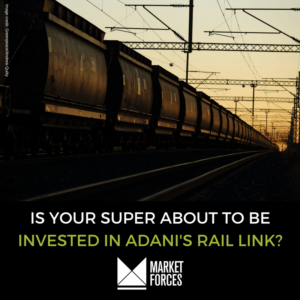18 October 2017
Shareholders today grilled Aurizon over its plans to build a railway that would open up the Galilee Basin to coal mining. The coal haulage company currently has a financing bid before the Northern Australia Infrastructure Facility (NAIF), rivalling Adani’s request for $1 billion to build the rail line. Adani needs the railway to link their proposed Carmichael mega coal mine to their Abbot Point port.
Aurizon was at pains to rubbish Adani’s proposal, and confirmed that they are still in the process of “pressing their case” with the NAIF board.
But Aurizon’s Galilee coal plans seem completely misaligned with its stated commitment to the Paris climate change agreement, and also the interests of its current coal haulage customers.
Aurizon’s sustainability report contains coal demand forecasts under scenarios where global warming is limited to 2°C, but these do not account for the impact of the proposed development of coal mines in the Galilee Basin. The board was asked two important questions relating to their plans to help unlock the Galilee Basin.
Is the board concerned about the impact of the Carmichael or other Galilee Basin mines displacing volumes from our existing networks and business in NSW and Queensland?
Why would Aurizon want to see the development of the Galilee Basin knowing it would put the objective of the Paris climate change agreement at risk, jeopardise existing sources of revenue for the company through our existing haulage networks, or potentially both?
In response, Company Chair Tim Poole claimed that Aurizon’s current thermal coal producing clients generally produce higher quality coal than what is in the Galilee Basin. But this point fails to recognise that, with the demand constraint imposed by a 2°C warming limit, either Aurizon’s current clients will lose market share, or investment in developing the Galilee will become stranded.
Climate risk concerns prevalent
For a company that generates a huge portion of its revenue from transporting coal for power generation, Aurizon is massively exposed to the transition risks posed by climate change. If efforts to curb emissions cause a sudden drop in coal demand, Aurizon stands to lose out big time. Poole also noted the company had sustained considerable losses this year due to the impacts of Cyclone Debbie. We know climate change is increasing the severity of extreme weather events like Debbie. With Aurizon clearly exposed to both the transition and physical risks posed by climate change, it was no surprise that shareholders attending today’s AGM took the opportunity to ask the board about the company’s approach to climate risk.
In response to shareholder questioning, Poole stated that the financial reports generally dealt with short term risks, whereas the sustainability report attempts to give an indication of longer term trends, so climate risk reporting is primarily dealt with in the sustainability report. However, this seems to fly in the face of the Australian Prudential Regulation Authority’s statement that climate change risks are material, and actionable now. Aurizon should be well aware of this, having been hit hard by Cyclone Debbie.
Aurizon said the company and its auditors had factored climate risks into their recent asset valuations, but failed to confirm that the auditors specifically consider climate change as a material business risk when assessing the financial reports.

